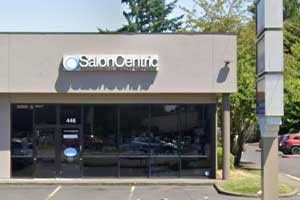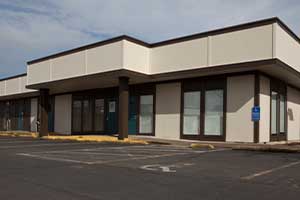Skip To Rehab Listing
However, for people struggling with drug and alcohol addiction problems, Stayton can also offer workable solutions in the form of 25 alcohol and drug treatment programs intended to support patients in their treatment.
Drug and Alcohol Rehab Approaches and Settings
Stayton area residents who struggle with substance abuse have multiple treatment settings available to them, such as the following: outpatient individual counseling, inpatient treatment facilities, short term treatment facilities, long term drug rehab centers, outpatient detox facilities.
These treatment centers make alcohol and drug rehabilitation easy to obtain, with convenient locations and a number of varying rehabilitation approaches from which to choose, including those listed here: activity therapy, substance abuse counseling approach, rational emotive behavioral therapy, anger management, vocational rehabilitation services, cognitive/behavior therapy.
Special Programs for Drug and Alcohol Treatment
Addiction affects every person differently. In order to accommodate these differences and deliver a more tailored treatment, drug and alcohol rehabs in Stayton provide a number of special programs for [patients such as: persons with eating disorders, persons with serious mental illness, suicide prevention services, treatment for spanish-speaking clients, domestic violence, transgender or (LGBT) clients.
Clients who feel they may benefit from these customized services can discuss them with the rehab center to get help that is meant to increase the likelihood of sustained recovery.
Treatment Payment Options
Residents of Stayton come from differing economic situations, making it vital for treatment centers to provide various payment alternatives that put rehabilitation within financial reach. Patients can expect to find funding alternatives at local alcohol and drug rehab centers including the following: private pay, private insurance, medicaid, medicare, military insurance, access to recovery (atr) voucher, other state funds.
Despite a patient's economic situation, money should not be an obstacle to recovery. Drug and alcohol rehab facilities guide individuals through their payment options and help them pinpoint a way to pay for their rehab.
The goal of varied rehab centers, approaches, programs, and payment alternatives is that treatment for drug and alcohol addiction is possible for as many people who really need it.
Commonly Asked Questions about Addiction and Treatment
Can a drug addict change?
Yes, a person struggling with drug addiction can certainly change. It's important to understand that addiction is a chronic, but treatable, disease. Like other chronic diseases, it's not about a "cure" but about managing the condition effectively.
Overcoming addiction typically involves a combination of self-awareness, willingness to change, support, and professional treatment. A key part of the process is the individual's motivation to improve their life and overcome their dependency on substances.
However, recovery from addiction often involves setbacks and challenges. The process can be difficult and time-consuming, requiring substantial personal commitment and support from others. Professional treatment can take several forms, including detoxification, medication-assisted therapy, counseling, and support groups.
Many people who were once addicted to drugs have gone on to live productive, healthy, and fulfilling lives. The journey to recovery is often a lifelong process of maintaining sobriety and managing triggers and cravings.
While change is indeed possible for someone struggling with addiction, it is typically a complex process requiring substantial effort, support, and treatment.
What does a detox do for a person afflicted with alcohol or drug addiction?
Detoxification, or detox, is the process of removing toxic substances, such as drugs or alcohol, from an individual's body. It is usually the initial step in treating a person with alcohol or drug addiction before they undergo further treatment or therapy. Detox serves several purposes in the recovery process:
- Physical stabilization: Detox helps the body rid itself of harmful substances, allowing the individual to regain physical stability. This process can alleviate some of the immediate health risks associated with substance abuse.
- Management of withdrawal symptoms: Detox addresses the withdrawal symptoms that can arise when an individual stops using drugs or alcohol. Depending on the substance and the severity of the addiction, withdrawal symptoms can range from mild to severe and may include physical discomfort, agitation, anxiety, and even life-threatening complications. A medically supervised detox can provide a safe and controlled environment to manage these symptoms, which may include the use of medications to alleviate discomfort and reduce cravings.
- Preparation for further treatment: Detox is often the first step in the recovery process, preparing the individual for further treatment such as counseling, therapy, or support groups. By addressing the physical dependence on substances, detox allows the individual to focus on the psychological, emotional, and behavioral aspects of their addiction during the subsequent phases of treatment.
- Assessment of individual needs: During detox, healthcare professionals can evaluate the individual's specific needs and circumstances, which may include co-occurring mental health disorders or other medical conditions. This assessment can help inform a tailored treatment plan to support the individual's recovery journey.
- Establishment of a support network: Detox provides an opportunity for individuals to connect with healthcare providers, therapists, and other individuals in recovery. This support network can play a critical role in maintaining motivation and providing encouragement throughout the recovery process.
What is smart recovery?
SMART Recovery (Self-Management and Recovery Training) is a global community of mutual-support groups that provide a structured, scientifically grounded program to help people manage their recovery from any type of addictive behavior, including substance abuse and behavioral addictions.
SMART Recovery's approach is different from other recovery programs like Alcoholics Anonymous or Narcotics Anonymous, which are based on the 12-step model. Instead of focusing on the concept of "powerlessness" over addiction, SMART Recovery emphasizes self-empowerment and self-reliance. It promotes the ability of individuals to change their own thoughts and behaviors to overcome addiction.
The SMART Recovery program is based on principles of cognitive-behavioral therapy (CBT) and motivational interviewing. It is designed around a 4-point program:
- Building and maintaining motivation: This helps individuals to build their motivation to change and avoid relapsing.
- Coping with urges: This gives individuals the skills to deal with urges or cravings as they arise.
- Managing thoughts, feelings, and behaviors: This is about developing healthy thoughts, emotions, and actions in place of the destructive ones that can lead to addictive behaviors.
- Living a balanced life: This involves individuals identifying what they truly value in life and building their lives around those values, leading to satisfaction and fulfillment beyond their addiction.
SMART Recovery meetings, both in-person and online, are facilitated by trained volunteers and are free to attend, though donations are appreciated. The program also offers a variety of tools and techniques for self-empowerment and self-directed change, available in various formats such as handbooks, worksheets, and online resources.












